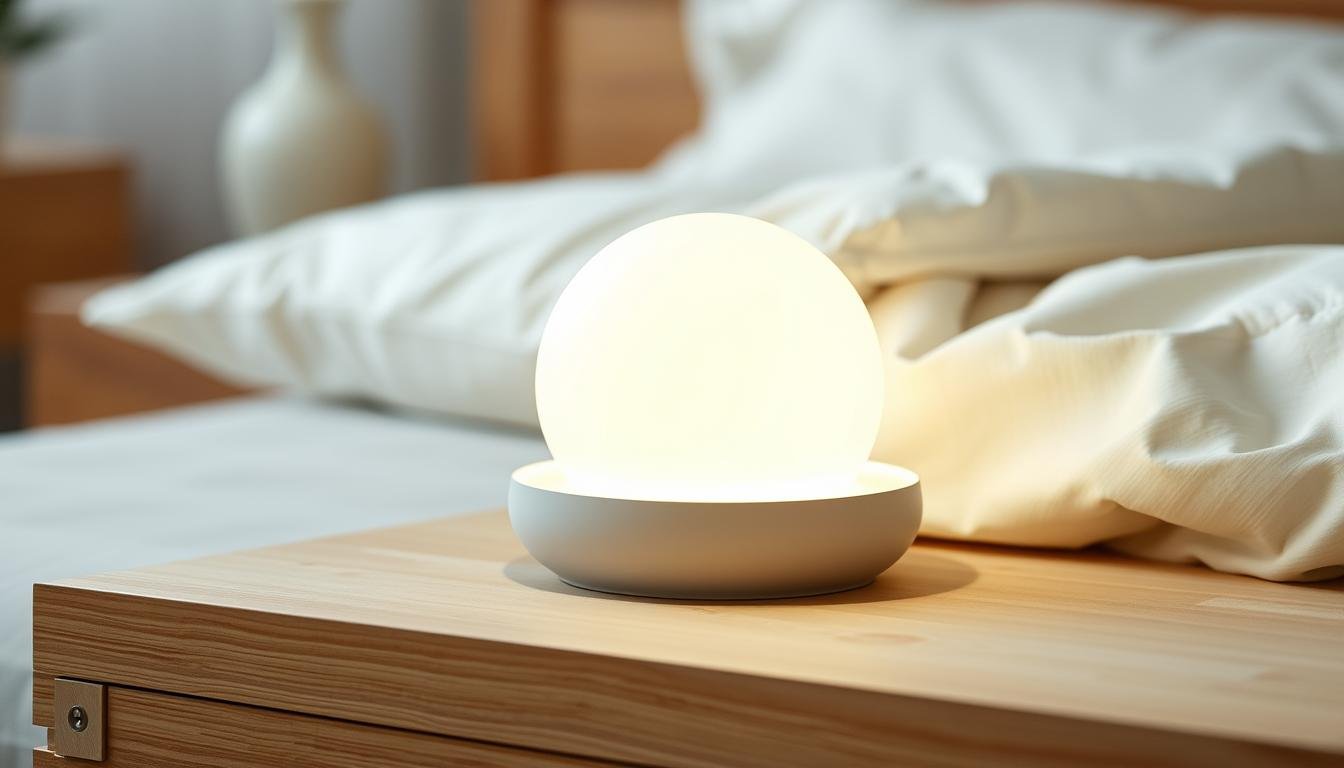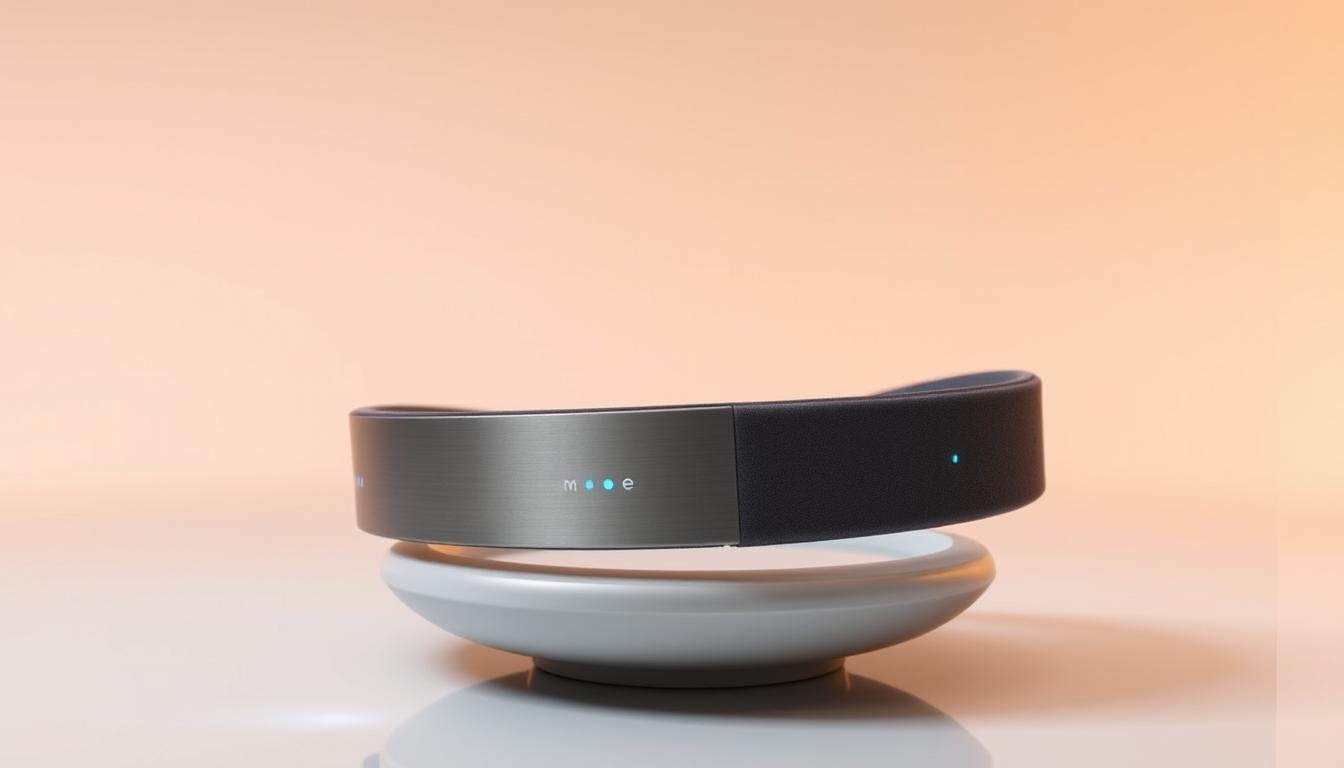AI Mindfulness Apps: Achieve Inner Peace with Technology
Mental health support has evolved significantly over the years. Traditional therapy, while effective, often comes with limitations like accessibility and cost. Today, technology is transforming how we approach emotional well-being. With tools like artificial intelligence, people now have access to 24/7 support that fits into their busy lives.
Statistics show that 32% of people globally would use AI for mental health support, reflecting a growing trust in these solutions. The global market for such tools reached $1.13 billion in 2023, with a 24% annual growth rate1. This rapid adoption highlights the demand for accessible and efficient mental health resources.
Hybrid models, combining the efficiency of technology with human empathy, are gaining popularity. These solutions bridge the gap between traditional therapy and modern needs. Whether it’s managing stress or improving emotional stability, AI-driven tools are becoming a reliable alternative for many.
Key Takeaways
- Technology is reshaping mental health support with accessible solutions.
- 32% of people globally are open to using AI for emotional well-being1.
- The AI mental health market grew to $1.13 billion in 20231.
- Hybrid models combine AI efficiency with human empathy.
- AI tools offer 24/7 support, addressing traditional therapy limitations.
What Are AI Mindfulness Apps?
Modern solutions are making meditation more personalized and accessible. These tools combine traditional practices with advanced technologies to create a seamless experience. Whether you’re new to meditation or a seasoned practitioner, these innovations cater to your unique needs.
How AI Enhances Traditional Meditation
Traditional meditation often follows a one-size-fits-all approach. However, AI-driven tools adapt to your preferences and goals. For example, they can adjust meditation length, focus areas, and guidance style based on your progress2.
AI chatbots like Woebot use natural language processing (NLP) to simulate therapeutic conversations. This allows for real-time feedback and emotional support during your practice2. Unlike static meditation tapes, these sessions evolve with you.
Key Technologies Behind AI Mindfulness Apps
Several cutting-edge technologies power these tools. Machine learning algorithms analyze data to predict the best meditation timing for stress relief2. NLP helps chatbots understand your emotions and provide tailored responses.
Platforms like Calm use Amazon Personalize to recommend content that suits your preferences2. This ensures every session feels relevant and engaging. Additionally, celebrity voice cloning adds a personal touch to sleep stories and guided meditations.
- AI personalizes meditation length, focus areas, and guidance style.
- NLP enables chatbots to understand and respond to user emotions.
- Machine learning predicts optimal meditation timing for stress relief.
- Calm uses Amazon Personalize for customized recommendations.
- Woebot implements CBT techniques through conversational AI.
Benefits of Using AI for Mindfulness
Innovative tools are reshaping the way we manage stress and mental health. These solutions offer personalized experiences tailored to individual needs. With features like adaptive session lengths and mood tracking, they provide a seamless way to improve emotional stability2.
Personalized Meditation Experiences
One of the standout features is the ability to customize sessions based on real-time stress biomarkers. Tools like Woebot use natural language processing to adapt guidance styles and focus areas2. This ensures every session feels relevant and effective.
Integration with wearable devices takes personalization further. By tracking data like heart rate and sleep patterns, these tools offer insights into your emotional state. This allows for tailored recommendations that align with your goals2.
24/7 Accessibility and Support
Another major advantage is the round-the-clock availability. Unlike traditional therapy, these tools eliminate waitlists and geographical barriers2. Whether you’re a shift worker needing midnight support or someone seeking help during a busy day, assistance is always at your fingertips.
Cost is another factor making these solutions appealing. Subscription plans typically range from $5 to $15 per month, compared to therapy sessions costing $100 to $200 per hour2. This affordability ensures that emotional well-being is accessible to more people.
Hybrid models, like Wysa, combine the efficiency of technology with human empathy. Users can escalate to a human therapist when needed, offering a balanced approach to mental health support2.
How AI Mindfulness Apps Improve Mental Health
Digital tools are transforming how we handle stress and anxiety. These solutions offer personalized approaches to mental health, making it easier to manage daily challenges. From reducing stress to improving sleep, these innovations are making a significant impact.
Reducing Stress and Anxiety
Daily use of these tools can significantly lower stress levels. For example, a clinical study found that 10 minutes of daily use reduced anxiety by 38% during the COVID era. This highlights the effectiveness of these solutions in managing stress.
Biofeedback integration is a key feature. By analyzing data like heart rate and breathing patterns, these tools provide tailored stress-reduction protocols. This ensures every session is optimized for maximum benefit.
Guided breathing exercises are another powerful feature. Studies show they can reduce cortisol levels, a key stress hormone. This makes them an excellent choice for stress management.
Enhancing Sleep Quality
Sleep is crucial for mental health, and these tools are making it easier to achieve. Calm users report falling asleep 49% faster with AI-curated stories. This demonstrates the effectiveness of personalized sleep solutions.
Headspace’s Sleepcasts align with sleep stages to improve rest quality. By adjusting soundscapes to match your sleep patterns, they ensure a deeper, more restorative sleep.
Traditional sleep aids often fall short. In contrast, AI-generated ambient soundscapes offer a more natural and effective alternative. This makes them a popular choice for improving sleep quality.
| Feature | Benefit |
|---|---|
| Biofeedback Integration | Tailored stress-reduction protocols |
| Guided Breathing Exercises | Reduces cortisol levels |
| AI-Curated Sleep Stories | 49% faster sleep onset |
| Sleep Stage Alignment | Improves rest quality |
These tools are not just about convenience. They offer scientifically-backed methods to improve mental health. Whether it’s reducing stress or enhancing sleep, they provide effective solutions for modern challenges.
Top AI Mindfulness Apps to Try Today
Exploring the best tools for emotional well-being can feel overwhelming, but these top-rated options simplify the process. Each offers unique features tailored to different needs, from stress relief to better sleep. Here’s a closer look at what makes them stand out.

Wysa: Emotional Support with CBT Techniques
Wysa combines cognitive behavioral therapy (CBT) with a friendly chatbot interface. It’s clinically validated and offers crisis protocols for immediate support. With over 5 million users, it’s a trusted choice for emotional well-being3.
Priced at $90 per year, Wysa provides affordable access to proven techniques. Its features include mood tracking and personalized exercises, making it a versatile tool for daily use.
Youper: Personalized Therapy with Mood Tracking
Youper uses advanced algorithms to predict mood patterns and tailor therapy sessions. With an 80% efficacy rate, it’s a reliable option for those seeking personalized support3.
At $60 per year, Youper integrates dialectical behavior therapy (DBT) techniques. Its mood tracking and journaling features help users stay consistent with their emotional well-being goals.
Calm: Curated Sleep Stories and Meditations
Calm is renowned for its sleep-focused content, including AI-curated stories narrated by celebrities like Jimmy Stewart. Its $70 annual subscription offers access to a vast library of meditations and relaxation techniques3.
Users report falling asleep 49% faster with Calm’s personalized content. Its voice cloning technology adds a unique touch, making it a favorite for improving sleep quality.
Headspace: Guided Meditations for Daily Practice
Headspace offers a structured approach to meditation, with guided sessions for beginners and advanced users. Its “Ebb” chatbot provides real-time support, enhancing the overall experience3.
Priced at $70 per year, Headspace focuses on building a consistent meditation practice. Its features include sleepcasts and mindfulness exercises, making it a comprehensive tool for emotional well-being.
Yuna: Voice-First Self-Therapy
Yuna stands out with its voice-first approach, offering encrypted voice journaling and real-time reflection. It’s designed for those who prefer speaking over typing for self-therapy3.
With a focus on privacy, Yuna ensures all interactions are secure. Its unique features make it an excellent choice for users seeking a more personal and introspective experience.
- Wysa: Clinically validated CBT techniques, $90/year.
- Youper: Mood prediction algorithms, $60/year.
- Calm: Celebrity-narrated sleep stories, $70/year.
- Headspace: Guided meditations with chatbot support, $70/year.
- Yuna: Encrypted voice journaling, real-time reflection.
How to Choose the Right AI Mindfulness App
Choosing the right tool for emotional well-being can feel overwhelming, but understanding your needs simplifies the process. With so many options available, it’s essential to focus on your goals and evaluate the features that matter most to you. This guide will help you make an informed decision.
Identifying Your Mindfulness Goals
Start by defining what you want to achieve. Are you looking to reduce stress, improve sleep, or build a daily meditation habit? Different tools cater to specific needs, so aligning your goals with the app’s focus is crucial.
For example, if anxiety is your primary concern, prioritize apps with clinically validated techniques like cognitive behavioral therapy (CBT). If sleep is your focus, look for tools with curated sleep stories or ambient soundscapes.
Evaluating App Features and Costs
Once you’ve identified your goals, compare the features of different tools. Look for options like offline access, wearable integration, and the ability to escalate to human support when needed. These can significantly enhance your experience.
Cost is another important factor. While the average subscription is $12.99 per month, many apps offer free basic tiers or trials. Be cautious of auto-renewal traps and ensure you understand the cancellation process.
Here’s a quick checklist to help you evaluate your options:
- Does the app offer offline access?
- Is it HIPAA-compliant for therapy-focused tools?
- Are there free trials or limited-feature versions?
- How extensive is the content library? (e.g., Calm offers 1000+ sessions, while Headspace has 500+)
By focusing on your needs and carefully evaluating the cost and features, you can find the right tool to support your emotional well-being. Take advantage of free trials to test the app before committing.
Getting Started with AI Mindfulness Apps
Starting your journey toward emotional well-being doesn’t have to be complicated. With the right tools, you can create a routine that fits seamlessly into your life. Here’s a step-by-step guide to help you get started and build a consistent practice.

Setting Up Your First Session
Begin by completing the initial mood assessment questionnaires. These help the app understand your current emotional state and tailor recommendations to your needs3. Based on your responses, the app will suggest the optimal time for your sessions, often aligning with AI-predicted stress patterns.
Pairing your wearable device, like an Apple Watch or Fitbit, enhances the experience. This integration allows the app to track metrics like heart rate and sleep quality, providing more personalized insights3. For beginners, starting with a 5-minute session is a great way to ease into the practice.
Building a Consistent Practice
Consistency is key to reaping the benefits. Studies show that daily reminders can improve retention rates by 76%3. Try habit-stacking techniques, such as pairing breathing exercises with post-lunch breaks. This makes it easier to incorporate the practice into your daily routine.
Gradually increase session length over time. For example, start with 5 minutes and progress to 15 minutes over three weeks. This approach, known as progressive overload, helps build sustainable habits without feeling overwhelming.
If you encounter technical issues, most apps offer troubleshooting guides. These resources ensure a smooth experience, allowing you to focus on your emotional well-being.
- Complete mood assessments for personalized recommendations.
- Pair wearables for enhanced tracking and insights.
- Start with 5-minute sessions and gradually increase duration.
- Use habit-stacking to integrate practices into daily routines.
- Leverage troubleshooting guides for technical support.
Advanced Features in AI Mindfulness Apps
Cutting-edge features are revolutionizing how we approach mental health support. From real-time assistance to seamless integration with everyday devices, these innovations are making emotional well-being more accessible and effective than ever before.
Real-Time Support Through Chatbots
Chatbots like Woebot and Wysa are transforming the way users receive emotional support. Using natural language processing, these tools guide users through evidence-based techniques, offering real-time feedback and tailored responses2. This ensures that every interaction feels personal and relevant.
For example, Woebot processes over 5 million conversations monthly, showcasing its widespread use and effectiveness2. These chatbots are not just reactive but proactive, identifying emotional patterns and suggesting exercises to address them.
Seamless Integration with Wearable Devices
Wearable devices like Fitbit and Apple Watch are enhancing the functionality of these tools. By analyzing data such as heart rate variability (HRV), apps can improve meditation recommendations by up to 40%2. This integration ensures that users receive personalized insights based on their physical and emotional state.
Garmin’s stress score-triggered meditation prompts are another example of how tracking can lead to timely interventions. These features make it easier to manage stress and maintain emotional balance throughout the day.
- Chatbots provide instant, personalized support using natural language processing.
- Wearable devices enhance functionality by analyzing real-time data.
- Tools like Woebot process millions of conversations monthly, ensuring widespread accessibility2.
- Integration with devices like Fitbit improves meditation recommendations by 40%2.
Addressing Common Concerns About AI Mindfulness Apps
Many users have questions about the safety and effectiveness of digital tools for emotional well-being. While these tools offer convenience and accessibility, concerns about privacy, data security, and their limitations compared to human therapists are valid. Let’s explore these issues to help you make informed decisions.

Privacy and Data Security
One of the biggest concerns is how your data is handled. Only 12% of digital tools meet GDPR standards, according to an EU Digital Health Audit4. This highlights the need for secure encryption methods like end-to-end (E2E) and Transport Layer Security (TLS), which protect your information from unauthorized access.
Free tools often monetize user data, which can lead to privacy risks. Always review the app’s privacy policy to understand how your information is used. Look for tools that prioritize compliance and user trust, as these are crucial for building confidence in digital solutions4.
Limitations of Digital Tools vs. Human Therapists
While digital tools can detect 73% of crisis situations, they are not a replacement for human therapists4. For example, AI chatbots have been known to provide harmful advice on sensitive topics, such as encouraging unhealthy eating habits5. This underscores the importance of human oversight in mental health care.
Hybrid care models, which combine digital tools with monthly therapy sessions, offer a balanced approach. These models ensure users receive both the efficiency of technology and the empathy of human support. However, it’s essential to avoid replacing clinical depression treatment with digital tools alone4.
- Only 12% of tools meet GDPR standards, emphasizing the need for secure encryption4.
- Free apps may monetize user data, increasing privacy risks.
- AI tools detect 73% of crises but can provide harmful advice in sensitive situations5.
- Hybrid models combine digital tools with human therapy for balanced care.
- Clinical depression treatment should not be replaced by digital tools alone.
Success Stories: How AI Mindfulness Apps Changed Lives
Real-life stories show how digital tools can transform emotional well-being. From overcoming grief to managing stress, these solutions have made a lasting impact on many users. Here are some inspiring examples of how technology has changed lives for the better.
User Testimonials and Case Studies
One user shared how Yuna helped them process grief when human therapists were unavailable. “It gave me a safe space to express my emotions,” they said. Another Meditopia user maintained a 5-year daily streak, which transformed their emotional resilience. These stories highlight the power of consistent practice.
Youper’s exposure modules helped a young professional reduce social anxiety. Over eight weeks, their PHQ-9 score dropped by 34%, showcasing measurable progress. Similarly, an entrepreneur used Wysa to manage startup stress, finding relief through guided exercises and mood tracking.
A teacher found comfort in Calm’s voice cloning feature, which mimicked their deceased mentor’s voice. This unique experience provided emotional support during a difficult time. Meanwhile, an artist used Yuna’s voice journaling to overcome creative blocks, unlocking new ways to express themselves.
Military veterans have also benefited from these tools. One veteran used Headspace’s VR integration to manage PTSD symptoms, finding it a valuable addition to their therapy routine. These stories demonstrate the diverse applications of digital tools in improving mental health.
| Case Study | Outcome |
|---|---|
| Social Anxiety Reduction (Youper) | 34% PHQ-9 score reduction in 8 weeks |
| Startup Stress Management (Wysa) | Improved stress levels and productivity |
| Creative Block Breakthrough (Yuna) | Enhanced artistic expression |
| PTSD Management (Headspace) | Better emotional regulation |
These success stories highlight the transformative power of digital tools. Whether it’s managing stress, overcoming grief, or improving emotional resilience, these solutions offer a new way to approach mental health.
Conclusion
Technology has opened new doors for mental health support, offering tools that are both accessible and effective. These solutions provide personalized experiences, making it easier for users to manage stress and improve emotional well-being. With features like mood tracking and adaptive guidance, they cater to individual needs, ensuring every session feels relevant6.
While these tools are cost-effective and available 24/7, they have limitations in handling complex mental health scenarios. For severe symptoms, consulting a professional remains essential. However, the future lies in hybrid models, blending the efficiency of technology with human empathy for comprehensive care7.
If you’re curious, start with clinically validated tools to explore their benefits. Remember, these solutions are a gateway to wellness, not a replacement for professional help. Embrace the future of mental health support, where technology and human collaboration work hand in hand.
FAQ
How do AI-powered meditation tools differ from traditional methods?
These tools use machine learning to adapt exercises based on your mood, preferences, and progress. Unlike static recordings, they offer dynamic guidance that evolves with your needs.
Can these apps really help with stress and anxiety?
Yes! Many users report significant relief through tailored techniques like breathwork, CBT-based exercises, and real-time feedback. Apps like Wysa and Youper specialize in emotional support.
Are sleep-focused features effective?
Absolutely. AI-curated sleep stories (like Calm’s library) or voice-guided wind-down routines (Yuna’s specialty) analyze your patterns to improve rest quality over time.
What should I look for when choosing an app?
Prioritize your goals—whether it’s stress management, better sleep, or daily practice. Compare features like chatbots, wearable integration, and cost before committing.
Is my data secure with these apps?
Reputable apps use encryption and anonymize data. Always check privacy policies—brands like Headspace and Youper are transparent about security measures.
How much time do I need to see results?
Even 5–10 minutes daily can make a difference. Consistency matters more than duration. Apps track progress to keep you motivated.
Can AI replace human therapists?
While apps offer great support for mild concerns, they’re not substitutes for clinical care. Think of them as supplemental tools for wellness.
Do these apps work offline?
Some, like Calm and Headspace, allow downloaded content for offline use. Real-time features (e.g., chatbots) require internet access.
Source Links
- https://m.economictimes.com/news/international/us/daily-horoscope-april-3-2025-major-planetary-shifts-for-aries-taurus-gemini-cancer-leo-love-career-health-predictions-revealed/articleshow/119913262.cms
- https://news.clearancejobs.com/2025/04/02/revolutionizing-resilience-how-ai-supports-veterans-and-service-members-mental-health/
- https://www.trendhunter.com/trends/clearspace
- https://blocktelegraph.io/cybersecurity-compliance-tips-from-the-experts/
- https://listverse.com/2025/04/02/ten-disturbing-news-stories-involving-chatbots/
- https://bmcpsychiatry.biomedcentral.com/articles/10.1186/s12888-025-06757-9
- https://vibes432.com/pro/pleine-conscience/ville/dr-kac/
Share this content:




Post Comment